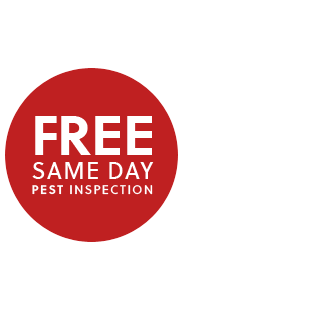Reducing home clutter reduces pests
Pests are nothing if not persistent. Their survival-driven quest for identifying sources of food, moisture, or shelter is never-ending.
The conditions that allow pests, from ants to rodents, to become a problem in and around homes are sometimes created by circumstances beyond our control, but they also can be the result of our own doing.
One human failing that often contributes to pests gaining access to – and establishing harborage inside – our homes is clutter.
Clutter gives pests cover
Clutter in closets, cabinets, attics, garages, sheds, and crawlspaces, and under beds, gives opportunistic pests a place to establish nesting sites free from prying human eyes. And if pests go undetected and find sources of food and water, they will multiply and cause problems before you know what hit you.
Clark, your friendly pest control, grounds care, and termite control expert, knows all too well that clutter is a pest’s best friend. Excess clutter in a home provides pests with safe harborage, from which they become a nuisance to your family and a threat to your home.
A stack of old newspapers in the garage waiting to be recycled can create a friendly environment for pests. So can cardboard boxes, a roll of old carpet in the attic or crawlspace, sleeping bags or camping equipment in the shed, and even clothes or bedding in a closet.
Clutter in a home can also reduce the effectiveness of a professional pest management service. Pests don’t hang out in the middle of a room often, and if a technician can’t access the space to conduct a thorough inspection and identify the source of the infestation, it will be difficult to make an accurate treatment recommendation.
Clutter and termites
In the case of termites – an even more secretive and invisible pest – a clutter-filled crawlspace can prevent a termite inspector from detecting the mud tubes or damaged wood that indicates the presence of termites. And, if left unchecked, destructive subterranean termites can threaten the structural integrity of your home and result in thousands of dollars in repairs and termite eradication services.
Other pest issues relating to clutter include the risk of being bitten or stung by spiders or stinging insects when moving or reaching inside old boxes, sleeping bags, and clothing.
Mice hiding in old furniture or boxes can destroy items. They can create a potential fire hazard if they chew on electrical wiring. They also can spread harmful bacteria to your food or eating areas with their urine and droppings.
Bed bugs enjoy hiding out in hard-to-see, undisturbed areas, and can easily be introduced into a home through luggage, clothing, or bedding.
The solution to pests and clutter
The solution to preventing pest issues related to clutter is simple: Take the time to do a thorough spring cleaning inside and outside your home. Taking these easy-to-do steps will eliminate clutter and deny pests a place to live in your home.
- Store items in sealed plastic containers so pests cannot gain access.
- Break down cardboard boxes, recycle old newspapers, and don’t let garbage or recycling cans fill up or go without lids.
- Donate old clothes and furniture you are no longer using.
- Go through your yard and pick up yard debris, including sticks and leaves.
Clark Pest Control is committed to safeguarding your home from pests during these challenging times. Our service technicians use such personal protective equipment as gloves, masks and respirators, they practice social distancing, they call ahead to notify you before a service, and they adhere strictly to all Centers for Disease Control and Prevention guidelines when servicing inside or outside your home.
If you think the clutter in your home is causing pest problems, call or text (800) WE-NEED-YOU (936-3339) or email us at clarkcares@clarkpest.com.
Until next time, the pest management professionals at Clark Pest Control thank you for helping to keep unwanted pests out of your home.


